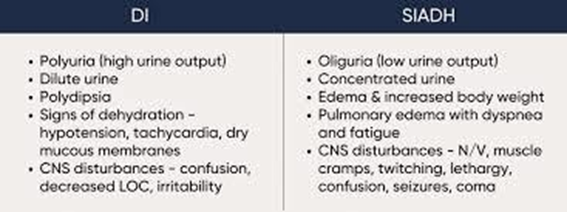A nurse is reviewing the medication record for a client who has chronic kidney disease. Which of the following medications should the nurse identify as having the potential to cause nephrotoxicity?
Ondansetron
Diphenhydramine
Vancomycin
Omeprazole
The Correct Answer is C
A. Ondansetron is an antiemetic commonly used to prevent nausea and vomiting, and it is not typically associated with nephrotoxicity.
B. Diphenhydramine is an antihistamine used for allergy symptoms and as a sleep aid. It is not known to cause nephrotoxicity.
C. Vancomycin is an antibiotic that can cause nephrotoxicity, especially when administered in high doses or in individuals with impaired renal function. Monitoring renal function is crucial when using vancomycin.
D. Omeprazole is a proton pump inhibitor used to reduce gastric acid secretion and treat conditions such as gastroesophageal reflux disease (GERD) and peptic ulcers. It is not associated with nephrotoxicity.
Nursing Test Bank
Naxlex Comprehensive Predictor Exams
Related Questions
Correct Answer is ["A","B","C","D","E","F"]
Explanation
The nurse should report the hoarseness of the client's voice, which could indicate recurrent laryngeal nerve damage, which is a risk associated with thyroid surgery. Tingling around the mouth may suggest hypocalcemia, a common complication after thyroidectomy due to accidental removal or damage to the parathyroid glands. The moderate serosanguinous drainage on the neck dressing could signify bleeding or infection, which requires immediate attention. The noted tremor in both hands and the increase in temperature could be signs of a thyroid storm, a rare but life-threatening condition.
Furthermore, the client's restlessness could be a response to discomfort or could indicate a more serious issue, such as an impending thyrotoxic crisis. Oxygen saturation at 95% is within normal limits postoperatively; however, it should be monitored closely.
Correct Answer is B
Explanation
A. Hyperglycemia is associated with diabetes mellitus, not diabetes insipidus. Diabetes insipidus is characterized by excessive thirst and urination due to inadequate secretion of antidiuretic hormone (ADH), not hyperglycemia.
B. Dehydration is a hallmark finding in diabetes insipidus due to excessive urination and fluid loss. Clients with diabetes insipidus may exhibit signs of dehydration, such as dry mucous membranes, decreased skin turgor, and hypotension.
C. Bradycardia is not typically associated with diabetes insipidus.
D. Polyphagia, or excessive hunger, is a symptom of diabetes mellitus, not diabetes insipidus.

Whether you are a student looking to ace your exams or a practicing nurse seeking to enhance your expertise , our nursing education contents will empower you with the confidence and competence to make a difference in the lives of patients and become a respected leader in the healthcare field.
Visit Naxlex, invest in your future and unlock endless possibilities with our unparalleled nursing education contents today
Report Wrong Answer on the Current Question
Do you disagree with the answer? If yes, what is your expected answer? Explain.
Kindly be descriptive with the issue you are facing.
